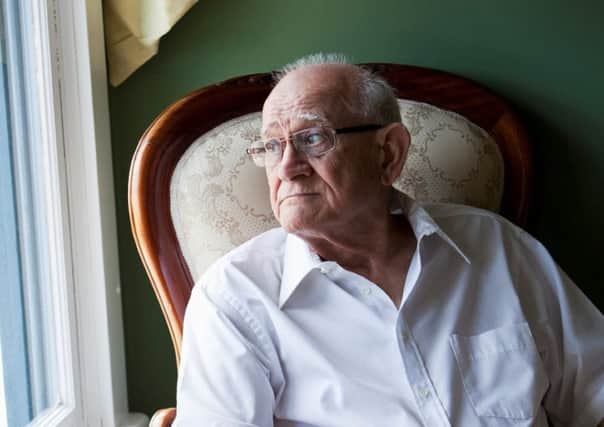Elephant in the room: Millions '˜putting off conversations about ageing'


Research by charity Independent Age said millions of older people across the country are delaying speaking to their families about ageing until times of crisis or not having them at all.
It said people are being forced to make rushed decisions about care, health, housing and financial matters, with, and families are left not knowing their loved ones’ wishes, and is urging people to speak to their relatives.
Advertisement
Hide AdAdvertisement
Hide AdIn Yorkshire and the Humber, 83 per cent of adults said it was fairly or very important about ‘who will care for them when they are older’, but just 28 per cent said they had done so.
Just 26 per cent said they had discussed where the older person would like to live if they could no longer live at home, and even fewer, 17 per cent said they had spoken about end of life care.
The charity also asked people which topics they would find it most difficult to discuss with their families, with the hardest being preferences for end of life care; who will care for me when I’m older if I need it; and where I would like to live if I can no longer live at home.
People put off talking about ageing for a number of reasons, researchers found, ranging from the practical to the emotional.
Advertisement
Hide AdAdvertisement
Hide AdNearly two thirds, 62 per cent, said not wishing to worry or upset the person they were talking to “might” or “has” stopped them having a conversation about preparing for older age; while almost half, 49 per cent, admitted not wanting to face up to the issue might or has stopped them.
Independent Age chief executive Janet Morrison said: “It’s not always easy to talk about getting old with loved ones, so we understand if families are tempted to put off these conversations. But having these conversations won’t be any easier later down the line, and families risk leaving it too late.
“We run a helpline for older people and their families, and we speak all the time to people having to make rushed decisions at times of crisis, perhaps after a fall or hospital admission. The families we speak to only want the best for their older relatives, but if they haven’t had the conversation, they may struggle to know what to do.”
The charity say it is “only getting more important” for families to have these conversations, as cuts to social care budgets and a rapidly ageing population mean fewer people are receiving care from local councils, and older people are increasingly reliant on informal care from family members or left facing huge care bills.
Advertisement
Hide AdAdvertisement
Hide AdIt is estimated that the number of older people living with a disability will rise from 2.9 million to 4.8 million between 2015 and 2035. Over the same time period, the number of disabled older people receiving informal care is projected to increase from 2.2m to 3.5m.
According to figures from the Association of Directors of Adult Social Services , local councils provided 400,000 fewer people with social care services in 2013/14 than in 2009/10.
The charity has today launched a new online guide to help families who want to talk to relatives about ageing. Visit www.independentage.org/difficult-conversations.